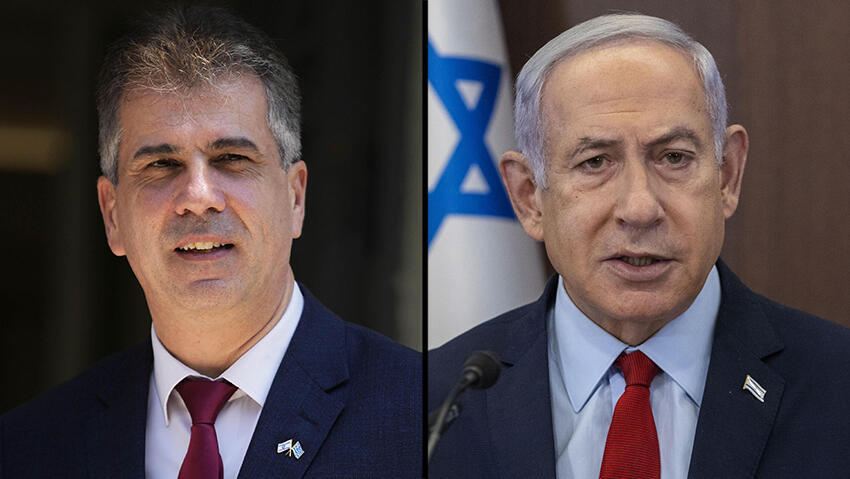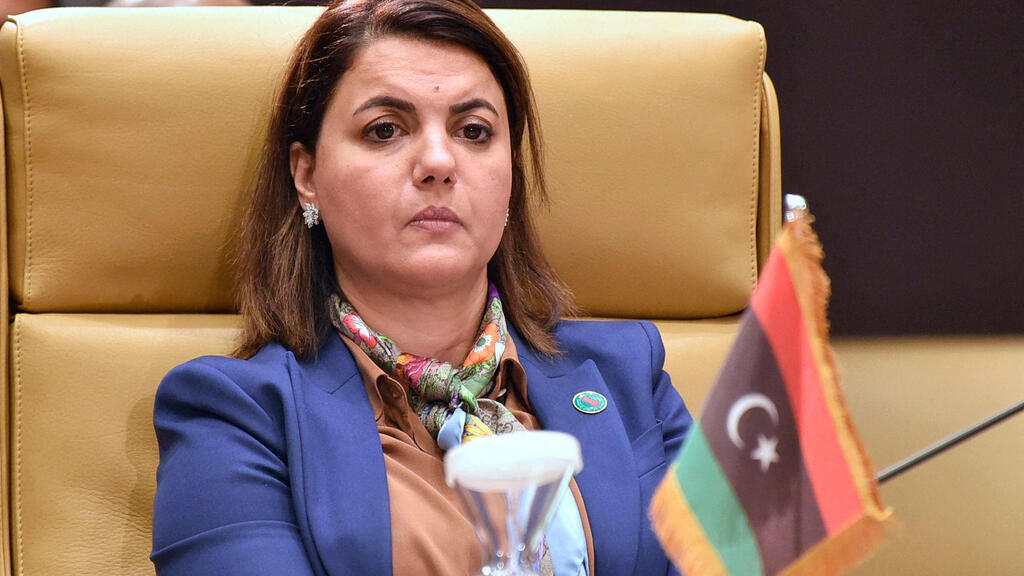Getting your Trinity Audio player ready...
Prime Minister Benjamin Netanyahu on Tuesday instructed ministers and officials to confirm with him before holding or publicly reporting on any covert diplomatic meetings, after the debacle in the wake of Foreign Minister Eli Cohen's Rome meeting with his Libyan counterpart, the PMO said. After news of the meeting broke, Libyans took to the streets in protest and Najla Mangoush was forced to flee to Turkey before being sacked. The prime minister claimed he was not informed in advance.
DIPLOMATIC CONTROVERSY ERUPTS AFTER ISRAEL-LIBYA MEETING REVEALED
(iltv)
Read more:
Israeli officials claimed the meeting was pre-arranged by the Italian leadership and was not random or accidental, as the Libyans claimed. The Israeli and Libyan ministers even agreed to make public statements within a couple of days, although no picture of the two was to be released. Cohen returned to Israel with the intention of announcing the meeting but a leak of the event, interfered with his plan. The Foreign Ministry claimed the leak did not originate from Cohen's office.
When the news broke, the ministry considered its options and decided to release an official statement late on Sunday, which ultimately was a mistake. Officials informed the government in Tripoli of the pending announcement and received no pushback from the Libyans.
The riots that ensued surprised officials in both countries. Prime Minister Abdul Hamid al-Dbeibeh first suspended his foreign minister who was shocked at how quickly she was thrown under the bus and hurried to leave the country by private jet to Istanbul. She was officially sacked the next day after she said that her meeting with Cohen was with the explicit knowledge and approval of the prime minister.
In the aftermath of the unfortunate turn of events, members of the government, especially from the ruling Likud party, slammed Cohen and called him an amateur. "He leaked the meeting in order to get a newspaper headline and caused serious damage to Israel," one said. "Arab leaders will be reluctant to come near us in addition to the personal damage caused to the Libyan minister.
Foreign Ministry officials were also critical of Cohen's conduct. Some told Ynet that he was an amateur in diplomacy. "Countries that do not have diplomatic relations with Israel will be careful to hold meetings, fearing publicity, followed by personal repercussion, because Israel has been proven incapable of keeping a secret," they said. "When Israel's credibility is compromised, the outreach to other countries in the future will be affected. Cohen wanted to bring more countries into the peace process but has shot himself in the foot."
The minister broke his silence on Monday. In a statement he said the Foreign Ministry operates through public channels and behind closed doors, to bolster Israel's international relations. "It is unfortunate that political opponents who have not delivered any substantial achievement and are not familiar with the details are quick to allege a leak that never occurred. Such attacks will not deter the ministry and its fine employees from continuing to work towards strengthening our ties with our many friends around the globe and especially in the Arab world."







